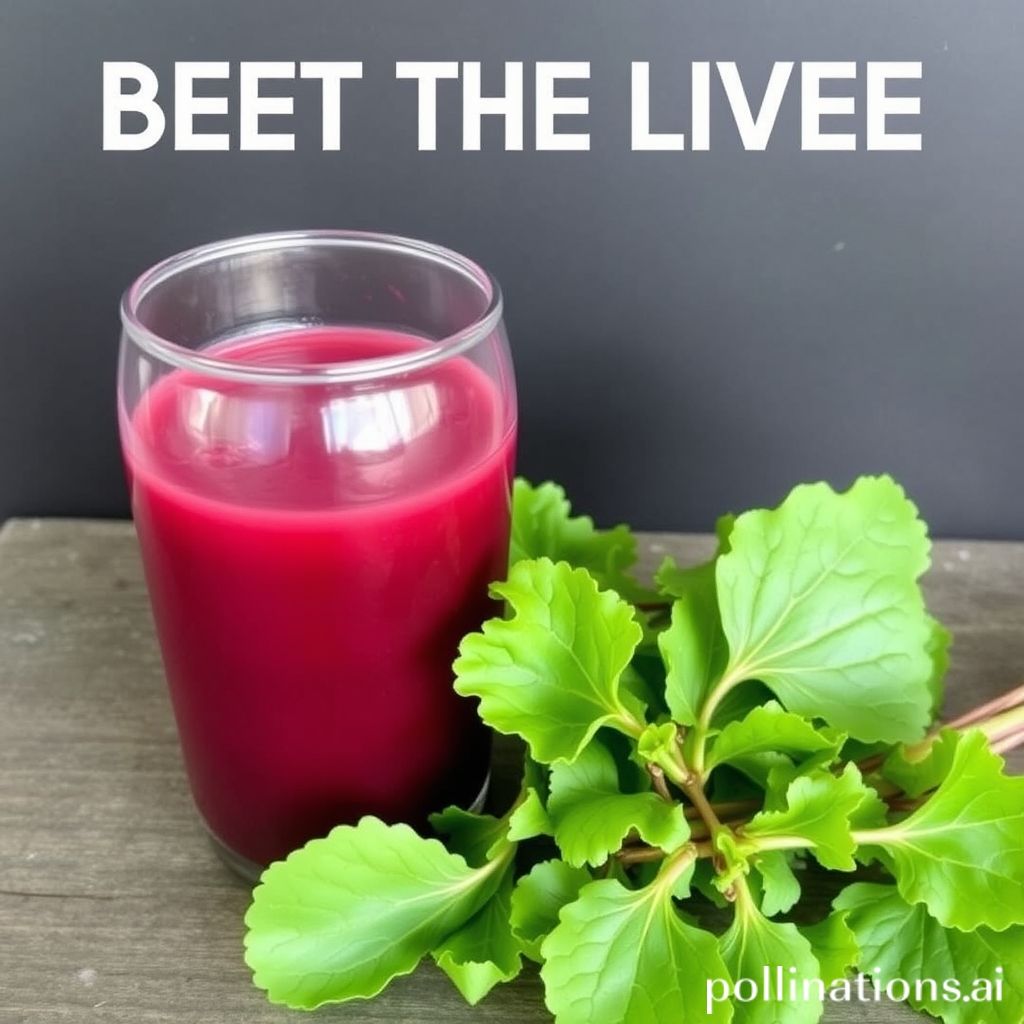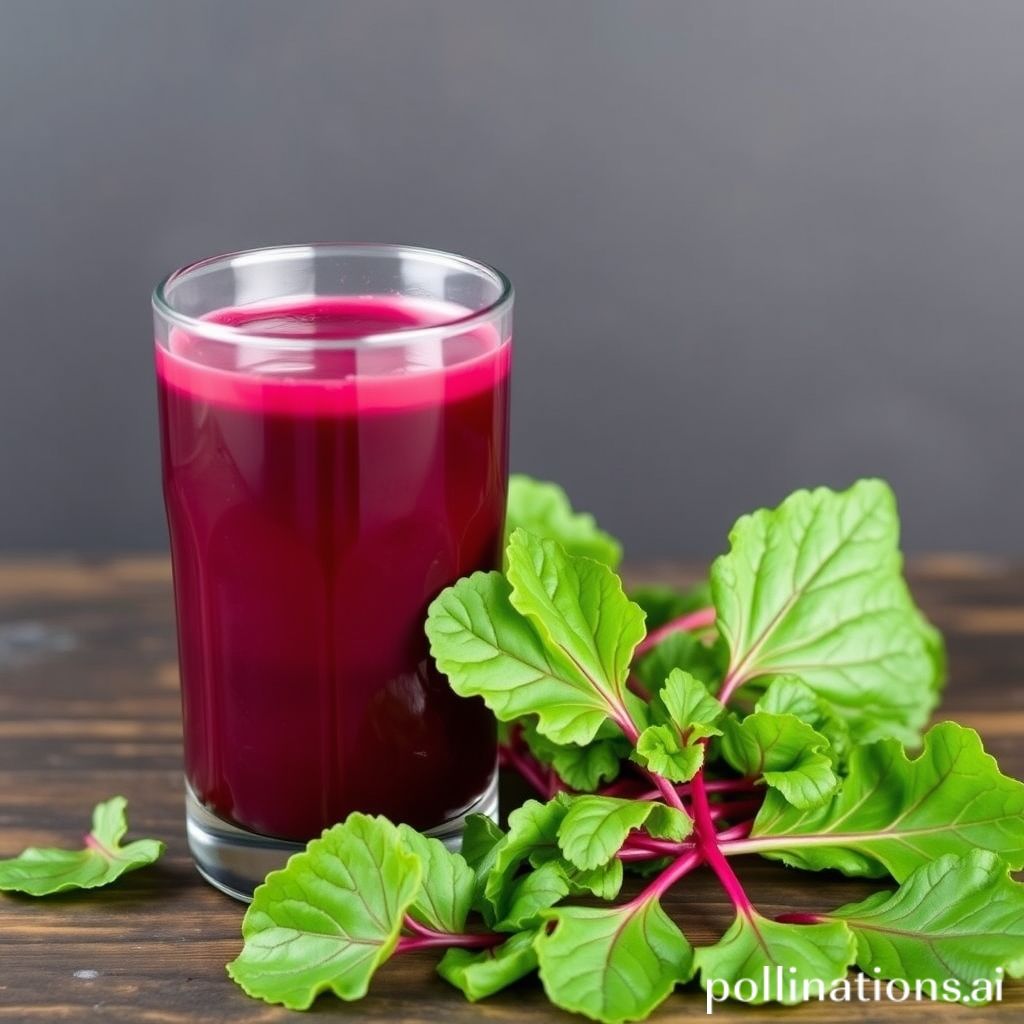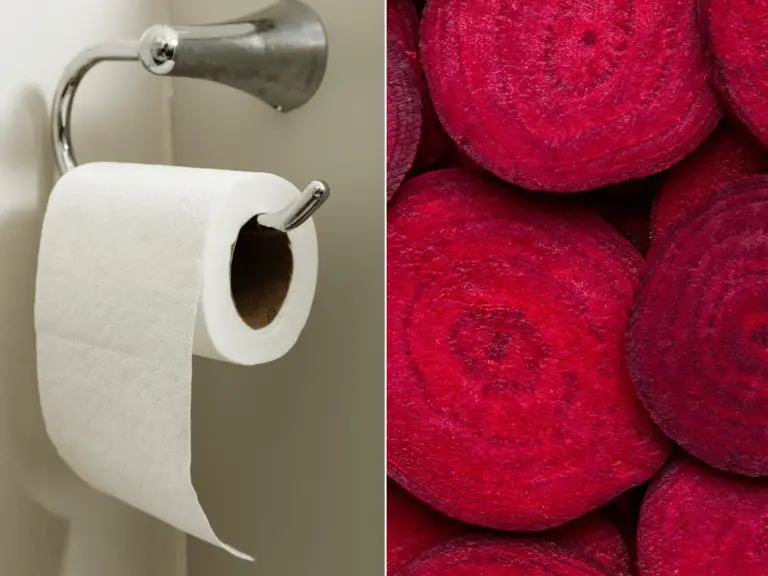Does Beet Juice Cleanse The Liver?
[su_note note_color=”#fb8e00″ text_color=”#000000″ radius=”12″]
As the popularity of beet-based products continues to rise, with beet juice and beet lattes becoming increasingly common, many are left wondering if all forms of beets provide the same nourishing benefits. Meanwhile fresh, whole beets are always the best option, using beet powder can be a simple and convenient way to reap the advantages of their potent nitrates.
Not only does beet powder offer a whole lotta superhuman strength, it also contains fewer carbs and calories compared to other forms of beets. This makes it particularly valuable for fitness enthusiasts following a keto-ish diet, aiming to keep their sugar intake low. For example, just one teaspoon of beet powder contains only 4 grams of carbs, Meanwhile a cup of beetroot juice has about 24 grams. Now, let’s explore whether beet juice can truly cleanse the liver and its potential benefits for liver health.
[su_box title=”
[/su_box]

What is liver detoxification?
1. Definition and process of liver detoxification
Liver detoxification is the natural process through which the liver eliminates toxins and harmful substances from the body. It involves a series of chemical reactions that convert these toxins into less harmful compounds. These compounds can then be excreted through urine or feces. The liver carries out detoxification in two main phases: phase I and phase II.
Phase I detoxification involves the activation of enzymes that break down toxins and convert them into intermediate substances. This prepares the toxins for further processing in phase II.
Phase II detoxification, also known as the conjugation phase, involves combining the intermediate substances from phase I with other molecules to make them water-soluble. This makes it easier for the body to eliminate them. The conjugated toxins are then transported to the kidneys or intestines for excretion.
It is important to note that liver detoxification is a continuous and natural process that occurs in the body without the need for specific interventions or cleanses. Nevertheless, certain lifestyle factors and dietary choices can support and enhance the liver’s detoxification function.
2. Importance of liver health
The liver plays a crucial role in maintaining overall health and well-being. It is responsible for numerous vital functions, including detoxification, metabolism, hormone production, and nutrient storage. A healthy liver is essential for efficient detoxification and overall body functioning.
When the liver is overloaded with toxins or not functioning optimally, it can lead to various health issues. The accumulation of toxins in the liver can impair its ability to detoxify effectively, resulting in oxidative stress, inflammation, and damage to liver cells.
By maintaining liver health, individuals can support the body’s natural detoxification processes and promote overall well-being. This can be achieved through a balanced and nutritious diet, regular exercise, proper hydration, and avoiding excessive alcohol consumption and exposure to harmful substances.
Incorporating beet juice into the diet is one potential way to support liver health, as it contains beneficial compounds that may aid in detoxification. Nevertheless, it is important to note that beet juice alone cannot cleanse the liver entirely. To ensure optimal liver function, maintaining a healthy lifestyle is key.
[su_highlight background=”#f6b40f”]Expert Tips: Support liver health with a balanced diet, exercise, hydration, and avoid excessive alcohol. Beet juice can aid detoxification, but a healthy lifestyle is essential.[/su_highlight]
Can Beet Juice Cleanse the Liver?
1. Overview of Beet Juice
Beet juice is derived from the root vegetable known as the beetroot. It is a rich source of essential nutrients and antioxidants and is known for its vibrant red color and earthy taste. Many people consume beet juice for its potential health benefits, including its impact on liver health.
2. Studies and Evidence Supporting the Idea
Several studies have explored the potential detoxifying effects of beet juice on the liver. These studies have found that beet juice contains compounds such as betalains and antioxidants that may help support liver function and promote detoxification.
One study published in the Journal of Nutritional Science and Vitaminology investigated the effects of beetroot juice on liver function in rats. The results showed that beetroot juice supplementation helped reduce oxidative stress and improve liver enzyme levels, indicating potential detoxifying effects.
Another study published in the Journal of Pharmacognosy and Phytotherapy examined the hepatoprotective properties of beetroot juice in mice. The findings revealed that beetroot juice demonstrated significant protective effects against liver damage induced by toxic substances.
| Benefits of Beet Juice for Liver Health |
|---|
| – Antioxidant-rich: Beet juice is packed with antioxidants that can help protect liver cells from oxidative damage. |
| – Detoxification support: The compounds found in beet juice may assist in the detoxification process, aiding the liver in eliminating toxins. |
| – Anti-inflammatory properties: Beet juice contains anti-inflammatory compounds that can help reduce liver inflammation. |
| – Nutrient density: Beet juice is a good source of essential nutrients like vitamins, minerals, and dietary nitrates, which are beneficial for liver health. |
Incorporating Beet Juice into Your Diet
There are various ways to incorporate beet juice into your diet to potentially support liver health. Some options include:
- Drinking a glass of fresh beet juice daily
- Adding beet juice to smoothies or juices
- Using beet juice as a base for homemade salad dressings
It is important to note that Whilst beet juice may offer potential benefits for liver health, it should not be considered a cure or substitute for medical treatment. Individuals with liver conditions or concerns should consult a healthcare professional.
Benefits of Beet Juice for Liver Health
1. Antioxidant Properties
Beet juice is rich in antioxidants, which are important for promoting liver health. Antioxidants help neutralize harmful free radicals in the body, which reduces oxidative stress and prevents cellular damage. Beets contain betalain compounds like betanin and vulgaxanthin, which have strong antioxidant properties that can protect the liver from oxidative damage.
2. Anti-inflammatory Effects
Inflammation is a common factor in liver diseases and can contribute to liver damage. Beet juice has anti-inflammatory properties that can help reduce inflammation in the liver and promote overall liver health. The betalains and other compounds present in beets have been found to inhibit inflammatory markers and modulate the immune response, which may benefit individuals with liver inflammation.
3. Detoxification Support
The liver plays a crucial role in detoxifying the body by filtering and eliminating toxins. Beet juice contains compounds that support the liver’s detoxification process. The betalain pigments in beets stimulate specific enzymes involved in detoxification pathways, helping the liver efficiently eliminate toxins and waste products.
Additionally, beet juice is a natural source of dietary nitrates, which can improve blood flow and oxygen delivery to the liver. Better blood circulation in the liver enhances its detoxification function and overall health.
It is important to note that Whilst beet juice can offer potential benefits for liver health, it is not a cure for liver diseases and should not be considered a substitute for medical treatment. It is advised to consult with a healthcare professional, especially for individuals with existing liver conditions.

How to Include Beet Juice in Your Diet
1. Fresh Beet Juice Recipe
A simple way to incorporate beet juice into your diet is by making a fresh beet juice recipe. Here’s how:
- Step 1: Wash and peel 2-3 medium-sized beets.
- Step 2: Cut the beets into small pieces for easy blending.
- Step 3: Put the beet pieces in a blender or juicer.
- Step 4: Add a small amount of water or your preferred liquid (like apple juice) to aid in blending.
- Step 5: Blend or juice the beets until smooth.
- Step 6: Strain the mixture to remove any remaining pulp.
- Step 7: Pour the fresh beet juice into a glass and enjoy!
2. Other Ways to Consume Beet Juice
If you don’t want to drink beet juice on its own, there are other tasty and creative ways to incorporate it into your diet:
- Beet Juice Smoothies: Blend beet juice with your favorite fruits, vegetables, and a liquid base (like yogurt or almond milk) to make a nutritious and refreshing smoothie.
- Beet Juice Shots: Take a small shot of beet juice in the morning or before a workout for a quick and concentrated dose of nutrients.
- Beet Juice Dressings and Sauces: Use beet juice as a base for homemade dressings or sauces to add a vibrant color and a hint of earthy sweetness to your dishes.
- Beet Juice Popsicles: Mix beet juice with other fruit juices or coconut water, pour the mixture into popsicle molds, and freeze for a healthy and refreshing treat.
Remember to start with small amounts of beet juice and gradually increase your intake to allow your body to adjust. It’s also important to consult with your healthcare provider if you have any underlying health conditions or are taking medications that may interact with beet juice.
| Information |
|---|
| Beet juice is packed with antioxidants, vitamins, and minerals that can support liver health. |
| It may aid in detoxifying the liver by promoting bile production and enhancing liver function. |
| Beet juice can be incorporated into your diet through fresh juice recipes, smoothies, shots, dressings, and popsicles. |
| Start with small amounts and consult with a healthcare provider if necessary. |
[su_note note_color=”#ea2e0c” text_color=”#ffffff” radius=”8″]Extra Tips: Boost your liver health by adding beet juice to your diet – try fresh recipes, smoothies, shots, dressings, and popsicles.[/su_note]
Other Natural Liver Detoxifiers
1. Turmeric
Turmeric is a vibrant yellow spice commonly used in Indian cuisine. It is known for its potent anti-inflammatory and antioxidant properties. The active compound in turmeric, called curcumin, has been shown to protect the liver from damage and support its detoxification processes. Research suggests that turmeric can reduce liver inflammation, enhance bile production, and promote toxin elimination from the body. You can easily incorporate turmeric into your diet by adding it to curries, smoothies, or golden milk.
2. Milk Thistle
Milk thistle, also known as Silybum marianum, is a flowering herb that has been used for centuries to promote liver health. It contains a powerful antioxidant called silymarin, which helps protect liver cells from damage and supports their regeneration. Silymarin also stimulates the production of glutathione, a key antioxidant that plays a crucial role in liver function. In the course of milk thistle supplements are widely available, it is important to consult with a healthcare professional before adding them to your routine.
3. Dandelion Root
Dandelion root has a long history of use in traditional medicine to support liver health and promote detoxification. It is rich in vitamins, minerals, and antioxidants that can protect the liver from oxidative stress and inflammation. Dandelion root also stimulates bile production, which aids in digestion and toxin elimination. You can enjoy dandelion root as a tea or incorporate it into salads and stir-fries to benefit from its potential liver-protective properties.
In the course of these natural liver detoxifiers show promise in supporting liver health, it is important to note that they should not replace medical treatment for liver conditions. If you have any concerns about your liver health or are considering incorporating these supplements or herbs into your routine, it is best to consult with a healthcare professional.
Conclusion
In the interim is limited scientific evidence specifically linking beet juice to liver cleansing, it does offer potential benefits for liver health. Beet juice contains antioxidants and nutrients that may support liver function and overall detoxification.
Incorporating beet juice into a balanced diet can be a beneficial addition for improving liver health. Nevertheless, it is important to remember that maintaining a healthy lifestyle, including a well-rounded diet and regular exercise, is crucial for optimal liver function. Therefore, Whilst beet juice may contribute positively to liver health, it should not be relied upon as a sole method for liver detoxification.
FAQ about Beet Juice and Liver Health
FAQ 1: Can beet juice detoxify the liver completely?
Beet juice is known for its potential to support liver health, but it cannot detoxify the liver completely on its own. At the same time beet juice contains compounds that may aid in the natural detoxification processes of the liver, a comprehensive approach to liver health should include a balanced diet, regular exercise, and avoiding harmful substances.
FAQ 2: How much beet juice should I consume for liver health?
There is no specific recommended amount of beet juice for liver health. Although, incorporating beet juice into your diet in moderation can be beneficial. Start with small amounts, such as half a cup per day, and gradually increase if desired. It’s important to listen to your body and consult with a healthcare professional if you have any concerns or underlying health conditions.
FAQ 3: Are there any side effects of drinking beet juice?
At the same time beet juice is generally safe for most people, it may cause some side effects. These can include temporary discoloration of urine or stool, stomach upset, and low blood pressure. If you experience any adverse effects after consuming beet juice, it is recommended to reduce the amount or discontinue use and consult with a healthcare professional.
FAQ 4: Can beet juice replace medical treatments for liver conditions?
No, beet juice cannot replace medical treatments for liver conditions. At the same time it may offer some benefits for liver health, it is essential to follow the advice and treatment plan prescribed by your healthcare provider. They will be able to provide you with appropriate medical guidance based on your specific condition.
FAQ 5: Is beet juice safe for everyone to consume?
Beet juice is generally safe for most people to consume. Although, individuals with certain health conditions, such as kidney stones or low blood pressure, may need to monitor their intake or avoid beet juice altogether. It is always recommended to consult with a healthcare professional before making any significant changes to your diet, especially if you have underlying health concerns.
Read Similar Post:
1. Exploring the Impact of Beet Juice on Liver Health: A Comprehensive Analysis
2. Effect of Beet Juice on Blood Sugar: Unveiling the Truth

